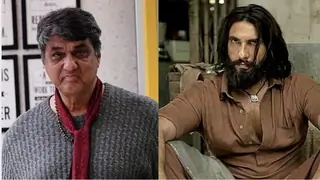Why are Indian cities a mess?
Because they are not about people
Urban projects are treated as political symbols, rather than as vehicles to makes the lives of citizens better.
By Somdeep Sen, Al Jazeera, 10 May 2023
Glance through the Economist Intelligence Unit’s 2022 “Global Liveability Index” and you will find Indian cities in the bottom half of the rankings. Of the 173 cities on the list, New Delhi is ranked 140, Mumbai 141, Chennai 142 and Ahmedabad 143. Bengaluru was adjudged the least liveable of the Indian cities considered, with a rank of 146.
The index measures stability, healthcare, culture and environment, education, and infrastructure in cities around the world. So what explains the dire state of cities in a country that claims to be an economic powerhouse?
The answer lies in a misguided approach to urban development, which focuses on marquee, grand projects meant to showcase political and economic clout and the ambitions of a rising nation. But such initiatives often benefit only a select few and leave the majority of urban Indians languishing in an ever-more unliveable environment.
Road to symbolism
In the years after independence in 1947, India focused on ensuring state control and oversight of building activity, land use and prices at a time when affordable housing and haphazard urban development were challenges. In fact, India’s First Five Year Plan (1951-1956) and Second Five Year Plan (1956-1961) included a slew of state-led public housing schemes focused on providing subsidised housing for industrial workers, low-income groups as well as affordable rental housing schemes for state government employees who were the bulk of the organised workforce at the time
But with the economic liberation of the 1990s and the growth of the national economy, the city became an exposition of rising India. Urban development was no longer aimed at bettering the lives of citizens. Instead, the aspiration was to make the city look like a hub of global flows of talent, capital, innovation, and culture. Doing so, according to political leaders and planners, was a matter of national pride and indicative of the country’s global ambitions.
The jingoism around such megaprojects cannot be missed. It was palpable a few weeks ago when, in the middle of chants of “Modi, Modi”, Indian Prime Minister Narendra Modi inaugurated a 118km (73 miles) expressway between Bengaluru and Mysuru in the southern state of Karnataka. The timing was political — the state votes for its legislature on May 10.
And the messaging was aspirational. Addressing the crowd, Modi said, “Youth are taking immense pride in witnessing the growth of our nation. All these projects will open up the pathways of prosperity and development.”
Similarly, as part of a $1.7bn project to redevelop the administrative center of the national capital, New Delhi, Modi renamed a major street that used to be called “Kingsway” during British rule and by its Hindi equivalent “Rajpath” after independence. Its new name? Kartavya Path — “kartavya” means responsibility. “Symbol of colonialism ‘Kingsway’ will be history and has been erased forever,” Modi said on the occasion. “I congratulate all the people of the country as we come out from another symbol of colonialism.”
This jingoism is not a uniquely Modi affliction though. It was also unmistakable when the Indian capital hosted the 2010 Commonwealth Games, when the Congress party — now in opposition — was in power. On the eve of the games, Suresh Kalmadi, the head of the organising committee for the event said, “The city is 10 years ahead now. Earlier, people would fly from Delhi to Dubai, Singapore, and many other destinations. Now they will land here, see the beautiful city”.
But Modi has taken this philosophy -- where urban development is first and foremost a symbol of national pride -- to new heights, especially with a futuristic-sounding Smart Cities Mission. Launched in 2015, the mission promised 100 smart cities, with tech-driven, sustainable, and citizen-centric solutions, by 2023.
Whose city?
But who are all of these cities being built for? In a bid to spruce up the image of New Delhi before the Commonwealth Games, some 350,000 street vendors were declared “illegal” and a “major security risk”. Their jobs didn’t matter.
In fact, according to the Housing and Land Rights Network (HLRN) charity, at least 200,000 people were also evicted from their slums and shanties between 2004 and 2010 in preparation for the games in the capital. This was in violation of the UN Basic Principles and Guidelines on Development-based Evictions and Displacement. Amnesty International reported that while most evictees were then housed in temporary shelters, these lacked adequate water and sanitation and were not fit for habitation.
It’s been the same story with the smart cities. In 2017, for instance, forced evictions and demolitions of homes were reported in 32 cities implementing smart city initiatives. In 2018, as part of the city of Indore’s effort to become “smart”, 110 homes of mostly Dalit slum-dwellers were demolished. This was in addition to the more than 500 homes that were demolished the previous year. In fact, at the time, an estimated 30 people each hour were being forcibly evicted across India as a result of smart city projects and urban beautification schemes.
Then there is the focus on tech-driven solutions. Take the digital and online platforms set up to gather citizens’ feedback on smart city projects. The massive digital divide in India means that these platforms are largely inaccessible to the most marginalized and vulnerable urban communities — which are also the most likely to be victims of forced expulsions and forced removals as a direct result of these smart city-making projects.
‘Smart or stupid city?’
In 2019, I met residents of a rehabilitation colony for slum-dwellers in Mumbai who had recently been forcibly evicted from their homes in another part of the city as a result of an urban beautification project. When I asked what they thought of Modi’s smart city plan, one of them asked, “Smart or stupid city?” As the others laughed, he continued: “We feel like we are disposable people. They have disposed us to the outskirts of the city and forgotten about us. Just left us to die.”
Then another resident chimed in, “But they can’t get rid of us. Who will cook for them, drive their cars, clean their houses, take out their trash? Without us, their lives will come to a standstill. We live in slums so they can live in their high rises”.
Yet Modi’s public relations machinery has so far managed to ensure that those sentiments that I heard in Mumbai don’t translate into a political backlash against his government. I recently asked a migrant worker in Mumbai his prediction regarding next year’s national election. He replied, “Modiji will stay in power.” When I asked why he thought so, he said, “Haven’t you seen the sea link, the tall skyscrapers? Even G20 is coming to Mumbai.”
The Mumbai sea-link, an elevated eight-lane bridge that connects otherwise congested western and central Mumbai, actually preceded the BJP-led national government. The G20 presidency, currently with India, is rotated — not any recognition of Modi. And when foreign dignitaries recently arrived in Mumbai for a G20 event, informal settlements along the highway were reportedly draped with green sheets as a way of beautifying the city.
Still, pitching urban development as a national cause clearly works politically. But it does little to solve the crises faced by India’s cities. It is only when urban development is focused on the most marginalized and vulnerable that cities truly belong to all, and genuinely become liveable.
The author is Associate Professor of International Development Studies at Roskilde University, Denmark. The views expressed in this article are the author’s own and do not necessarily reflect Al Jazeera’s editorial stance.





















841